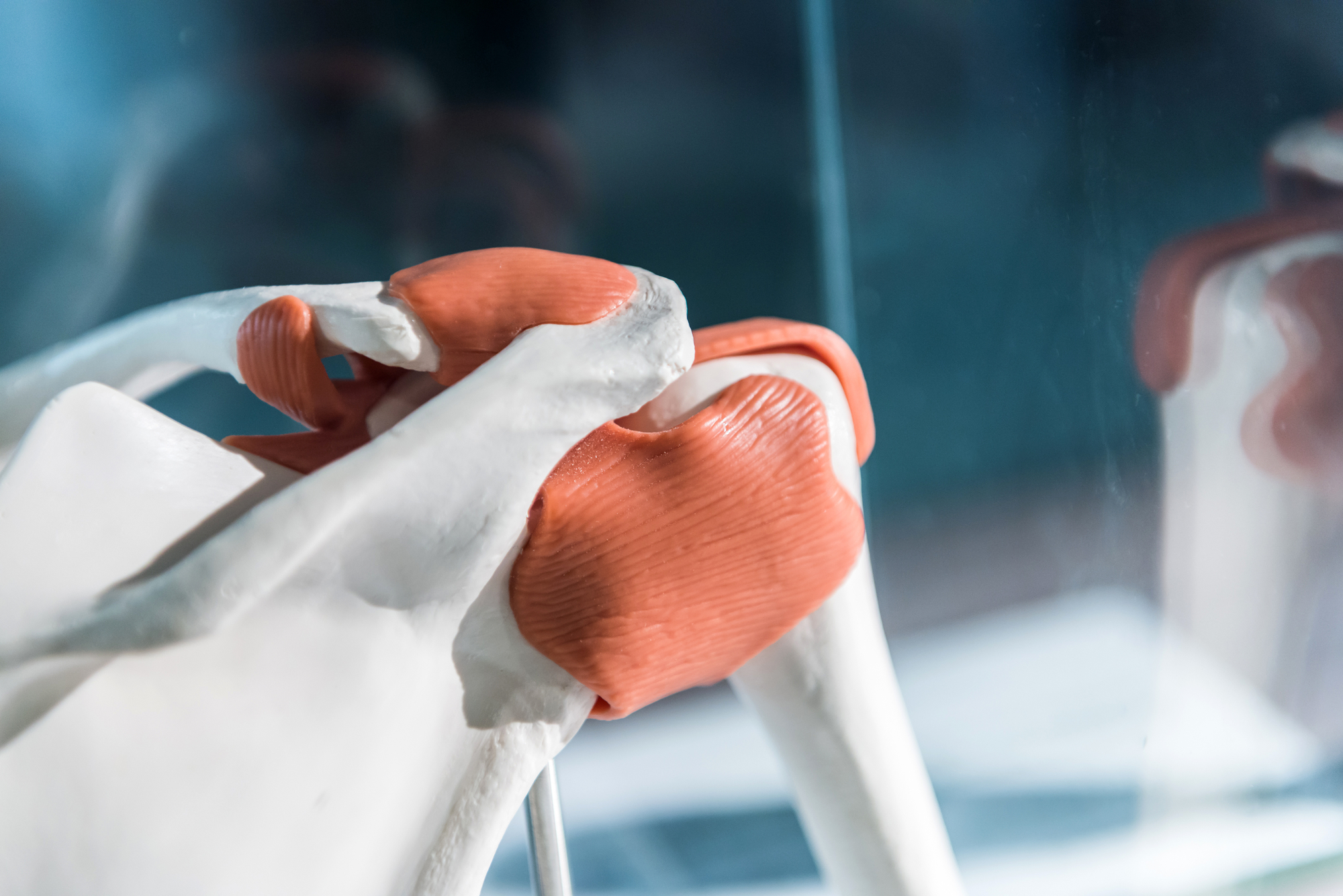The pain of any kind can be an irritating thing that seems to always come back at inopportune times. Shoulder replacement surgery can help you find relief from stiffness, swelling, pain, and movement limitations in your shoulder. Total shoulder replacement is a highly successful procedure that helps reduce pain and mobility limitations in patients with end-stage shoulder arthritis.
Signs You Might Need A Shoulder Replacement
The most common reasons for a complete shoulder replacement include:
Arthritis of the Shoulder Joint: Arthritis can develop at any age, but it is most common in patients over the age of 40. Arthritis is a degenerative condition that causes stiffness and pain in the shoulder joint as the cartilage begins to wear down. Your physician may recommend a few options before opting for a complete shoulder replacement. Anti-inflammatory medication coupled with non-surgical treatment may be recommended first. Talk with your doctor to weigh all your available options.
Fractures: The shoulder is made up of three bones. Scapula, Clavicle, and Humerus. When these bones are damaged from a fall or other accident and cannot be repaired, a surgeon may recommend a partial or total shoulder replacement depending on the severity.
Rotator Cuff Tear: Most common of the three is when a tear occurs in the rotator cuff. This happens when a patient sustains an injury to one of the four muscles that wrap around the upper portion of the arm bone. These muscles help provide stability in the shoulder joint and if left treated, arthritis can begin to develop.
How To Know If Surgery Is Right For You
There are a few different things to consider when deciding if a shoulder replacement surgery is right for you.
What Symptoms Do You Have: Certain symptoms may call for a shoulder replacement. Patients who might be a good candidate for shoulder surgery will have stiffness in their shoulder joint that limits the range of motion in their arm. These limitations can make it harder for everyday actives such as getting dressed or cleaning around the house.
Non-Surgical Options Haven’t Been Successful: Our physicians will recommend physical therapy or other forms of rehabilitation before suggesting a shoulder replacement surgery. If exercising, stretching, pain medication, or adjustments within your lifestyle, don’t make a difference, surgery may be the only option.
Recovery Process
According to UCSF Health**, shoulder replacement and the 10-year survival rate is up to 90 percent. Many patients end up with very functional shoulders and can return to normal daily life and low physical activity sports. After the surgery, your orthopaedic surgeon will admit you into a physical therapy program. This program will follow specific exercises to help you regain full arm and shoulder movement. These exercises are important because they help prevent your shoulder and elbow from getting stiff. The days following the surgery will be hard to perform the exercises, but gradually they will get easier over time.
Patients are discharged from the hospital-based on their overall condition and postoperative plans that will be established by your surgeon. What typically has been a 2 to 3-day hospital stay this procedure is becoming more often an outpatient procedure. After returning home, it is important to continually follow your surgeon’s post-operative instructions including an exercise plan. The healing process doesn’t stop once you leave the hospital.
Each patient has a different recovery period depending on the age and severity of the shoulder condition. It is important to speak with your physician and listen to their recommendations for the full duration of your recovery period.
Closing Thoughts
Rotator cuff tears are among the most common shoulder injuries and pain can come from many different conditions. There are roughly 53,000 shoulder replacement surgeries done every year in the U.S. and many patients have great success after the surgery. Remember that any joint replacement is an intense operation and requires dedication from the patient and the care provider. Make sure you have all the facts before opting to do a shoulder replacement surgery.
The best way to determine if you need a shoulder replacement is to see your physician at NOC. Our team of certified staff can help diagnose your condition, answer any and all questions you may have, and give you the best course of action that fits your situation. Whether it’s physical therapy, medication, other forms of rehabilitation, or ultimately, surgery, we’re here for you.
Contact our office at (402) 436-2000.
**UCSF Health. “Recovering from Shoulder Replacement Surgery.” Ucsfhealth.org, UCSF Health, 6 Oct. 2020, www.ucsfhealth.org/education/recovering-from-shoulder-replacement-surgery.

